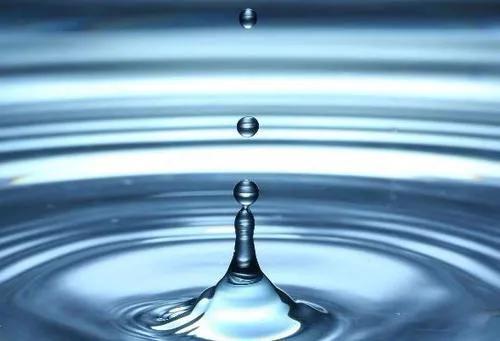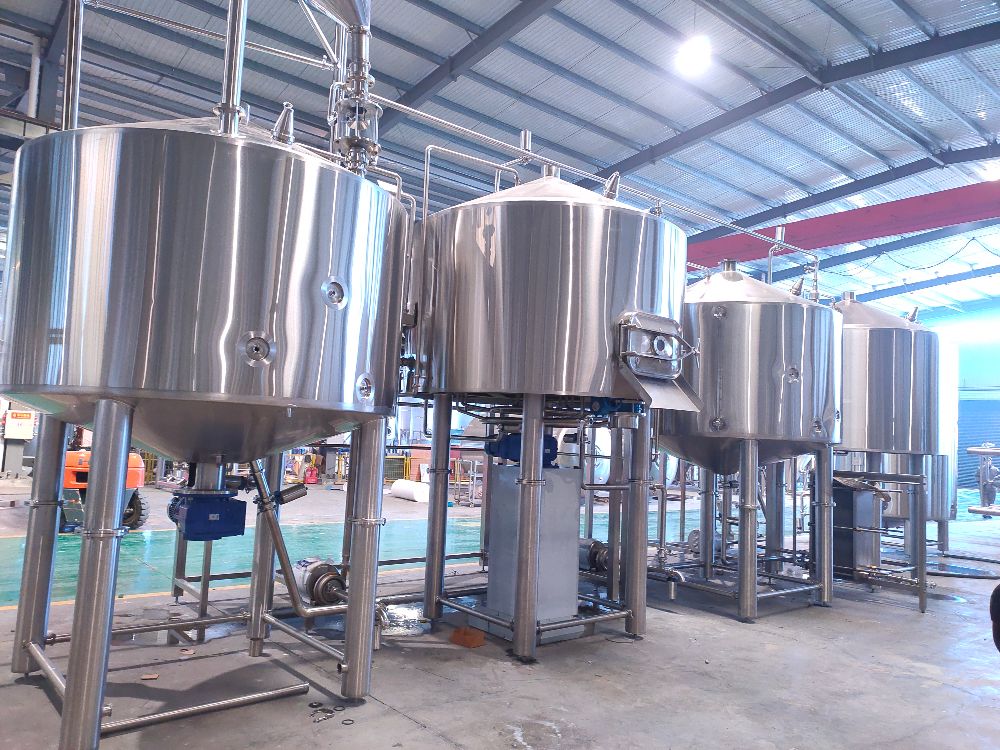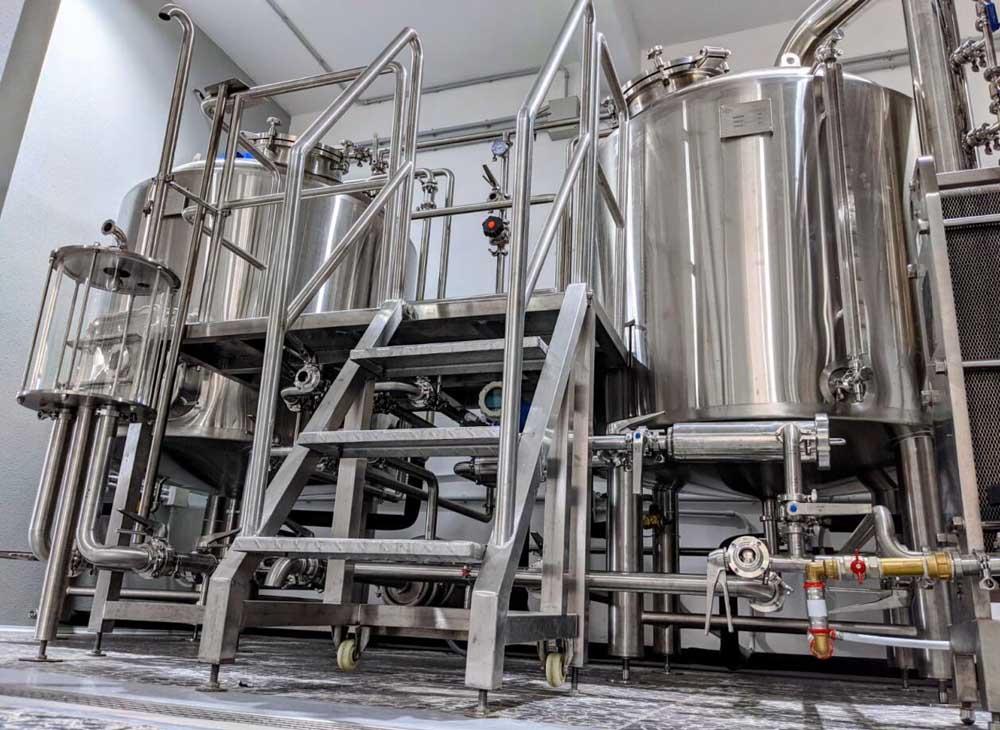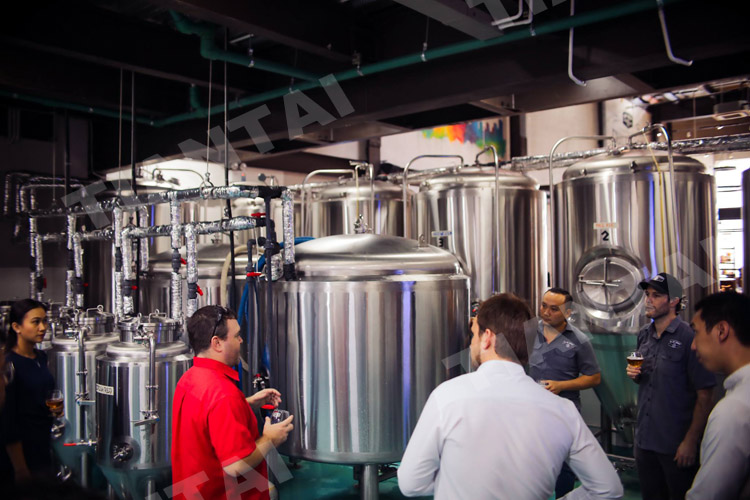Impact of water treatment on beer brewing
- Aug 08, 2020
- 139
- tiantai
Impact of water treatment on brewing
Water is one of most important material on beer brewing. Water quality also has some influence in final beer quality. So, what should we pay attention to for brewery water use?
For brewery water, the quality of raw water and soft water needs to be controlled. The lime water de-hardening equipment is difficult to adapt to the change of water hardness; for ion exchange equipment, the CO2 degassing tower has the function of balancing water quality. When the brewing water is changed from hard water to soft water (for example, the original residual alkalinity of 1.783mmol / L hard water is changed to residual alkalinity of 0.1783 ~ 0.3566mmol / L soft water). Due to the change in water quality, the inherent quality of beer must change Conditions can make sensitive consumers aware.

How can we alleviate the problem of water quality change?
Beer made by softening water with a certain method to remove hardness has a lighter color and a softer taste, but sometimes it lacks mellowness and so on. Because the wort's pH is low, the solubility of a-acid is low, which results in a relatively weak hop bitterness. Therefore, it is best to use a small fermentation test to measure the bitterness value in tender beer until the test. The value is very close to the original product value, and then determine the hop increase in production; in most cases, it is necessary to appropriately increase the amount of hops, such as the above example, increase the amount of hops by about 10%. If soft water is used for brewing light-colored aged beer or malt-flavored export beer, it is better to use malt with prominent flavor and slightly higher color such as 3.5-4.0EBC malt instead of 3.0EBC malt to obtain a more satisfactory effect. If the brewing water treatment is ideal, it has a good effect on protein rest, fast wort filtration rate, high saccharification yield, ideal wort pH value, sufficient protein aggregation during boiling, and higher final fermentation degree of beer , Lower wort color and other advantages.
However, when the residual alkalinity of brewing water is reduced from 1.7832mmol / L to 0 ~ 0.3566mmol / L, the pH value of the finished beer does not change as much as the pH of wort and mashed mash.
Edited By Alisa
Email:[email protected]
Water is one of most important material on beer brewing. Water quality also has some influence in final beer quality. So, what should we pay attention to for brewery water use?
For brewery water, the quality of raw water and soft water needs to be controlled. The lime water de-hardening equipment is difficult to adapt to the change of water hardness; for ion exchange equipment, the CO2 degassing tower has the function of balancing water quality. When the brewing water is changed from hard water to soft water (for example, the original residual alkalinity of 1.783mmol / L hard water is changed to residual alkalinity of 0.1783 ~ 0.3566mmol / L soft water). Due to the change in water quality, the inherent quality of beer must change Conditions can make sensitive consumers aware.

How can we alleviate the problem of water quality change?
Beer made by softening water with a certain method to remove hardness has a lighter color and a softer taste, but sometimes it lacks mellowness and so on. Because the wort's pH is low, the solubility of a-acid is low, which results in a relatively weak hop bitterness. Therefore, it is best to use a small fermentation test to measure the bitterness value in tender beer until the test. The value is very close to the original product value, and then determine the hop increase in production; in most cases, it is necessary to appropriately increase the amount of hops, such as the above example, increase the amount of hops by about 10%. If soft water is used for brewing light-colored aged beer or malt-flavored export beer, it is better to use malt with prominent flavor and slightly higher color such as 3.5-4.0EBC malt instead of 3.0EBC malt to obtain a more satisfactory effect. If the brewing water treatment is ideal, it has a good effect on protein rest, fast wort filtration rate, high saccharification yield, ideal wort pH value, sufficient protein aggregation during boiling, and higher final fermentation degree of beer , Lower wort color and other advantages.
However, when the residual alkalinity of brewing water is reduced from 1.7832mmol / L to 0 ~ 0.3566mmol / L, the pH value of the finished beer does not change as much as the pH of wort and mashed mash.
Edited By Alisa
Email:[email protected]



.jpg)
